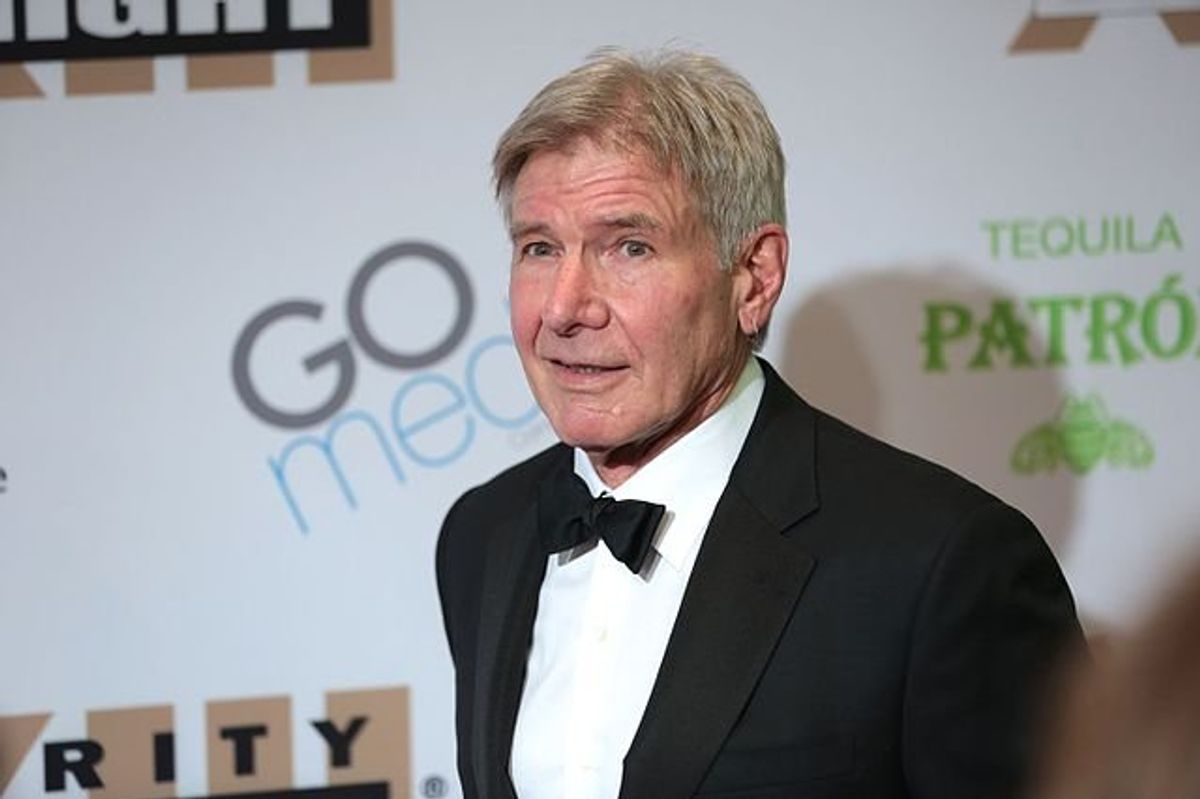
Harrison Ford, 80, is throwing on his leather jacket and fedora for one last time in “Indiana Jones and the Dial of Destiny,” which is expected to hit theaters in June 2023. The film is about Indy’s lifelong foes, the Nazis, being involved with NASA at the height of the space race.
It’s been 15 years since Ford played Indy on the big screen in 2008’s “Indiana Jones and the Kingdom of the Crystal Skull.” In that film, Indy makes numerous quips about being in his mid-60s, noting that he’s still a professor but only “part-time,” and after a failed swing from his bullwhip, he admits his eyesight isn’t what it once was. “Damn, I thought that was closer!” he says.
His son, Mutt Williams, even overestimates his age, asking, “What are you, like, 80?” But now that he’s 80 in “Dial of Destiny,” there won’t be any old man jokes in the picture.
“Yeah. In [Dial of Destiny] there were a lot of old jokes in the script. We took them all out,” Ford told The Hollywood Reporter. “There is a moment where he observes himself in this situation and says, ‘What the f**k am I doing in here?’ But I hate what I call ‘talking about the story.’ I want to see circumstances in which the audience gets a chance to experience the story, not to be led through the nose with highlights pointed out to them. I’d rather create behavior that is the joke of age rather than talk about it.”
The film’s writer and director, James Mangold, said that the film reflects where Indy is currently in his life.
“The mistake you can make in movies is when someone is of a ripe age but the movie continues this charade that they’re not that old,” Mangold said. “Every challenge he faces is through the reality of what someone of that age would be dealing with.”
Ford’s decision to excise all the old man jokes in his last run as Indiana Jones is a blow to one of the oldest “isms” still prevalent in Hollywood: ageism. Older people are subject to all sorts of negative stereotypes, so it’s great that Ford—a man in incredible shape for his age—doesn’t want to promote them.
The notion that older people are bumbling, forgetful, out of touch and physically frail can have a very negative effect on their well-being.
“Ageism remains one of the most institutionalized forms of prejudice today,” Todd Nelson, Ph.D., professor of psychology at California State University, Stanislaus, told the Association of Health Care Journalists. “Our entire society tells older people, you are useless, unwanted, and a burden. It tells younger people that getting old is bad, and being old is worse.”
Further, everyone ages differently. To paint such a large swatch of humanity with the same brush reduces people to little more than a number. When in reality, age brings a host of qualities that younger people should wish to have such as experience, confidence and wisdom.
It’s wonderful that we get to see Harrison Ford as Indiana Jones in one final adventure, regardless of how old he happens to be. After all, as he famously told Marion Ravenwood in “Raiders of the Lost Ark,” “It’s not the years” that matter, it’s the “mileage.”
